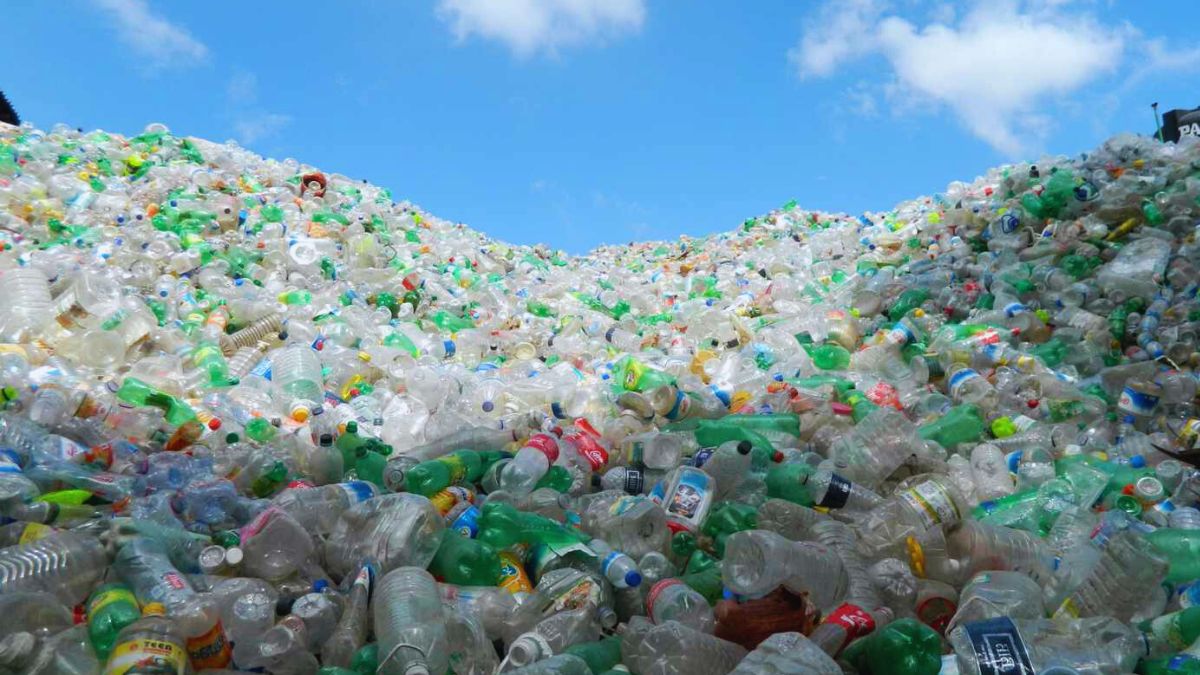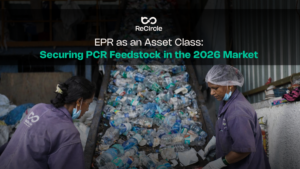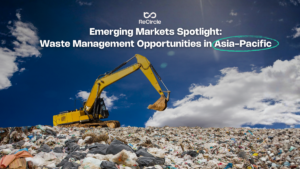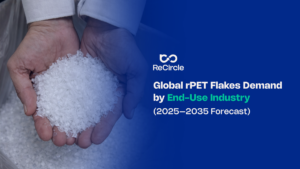The Future of India’s EPR Plastic Credit Market: Rapid Growth by 2030
At ReCircle, we are passionate about driving India’s transformation towards a circular economy through effective plastic waste management. The Extended Producer Responsibility Plastic (EPR) system is a landmark approach that makes producers, importers, and brand owners accountable for the plastic they put into the market. Through compliance and innovation, India’s EPR plastic credit market is poised for extraordinary growth by 2030.
This blog unpacks the drivers fueling this growth, paints a picture of the future state of the market, explains our comprehensive EPR services, and helps businesses understand how to prepare. Our goal is clear: to empower companies with knowledge and solutions to succeed in this rapidly evolving landscape, while protecting the environment and uplifting communities.
Understanding Extended Producer Responsibility Plastic
EPR is a global concept adapted in India’s 2016 Plastic Waste Management Rules, steadily refined to meet ambitious waste reduction goals. It shifts the responsibility for waste collection, recycling, and recovery from local governments to producers and importers—who, after all, generate the plastic they sell.
India’s EPR rules require companies to:
- Use recycled content in packaging,
- Recover and recycle equivalent amounts of plastic waste,
- Report compliance transparently.
Companies that exceed targets generate plastic credits, which can be traded digitally to balance compliance gaps efficiently.
Key Drivers of India’s EPR Plastic Credit Market Growth by 2030
1. Regulatory Tightening and Yearly Target Escalations
The Government of India continues to increase EPR targets each fiscal year until 2028-29, making the compliance landscape more challenging but also more effective. Higher recycled content percentages and mandatory post-consumer plastic recovery mean more businesses require credible means to demonstrate compliance.
For example, brands must increase recycled plastics in their bottles or packaging from 30% to 60% over a few years. Where direct recycling is not feasible, they can buy credits proving equivalent recovery elsewhere.
Moreover, businesses must report annually via the CPCB online portal, increasing transparency and data availability to regulators and the public.
2. Institutionalisation and Maturation of the Plastic Credit Market
Similar to carbon credits, verified plastic credits have become formal currency for compliance and sustainability claims. This market supports:
- Producers who may lack recycling infrastructure to partner with recyclers.
- Recyclers seeking revenue streams for their operations.
- Investors looking for transparent, impact-driven opportunities.
By 2030, this market will become an integral, self-regulating electric ecosystem balancing supply/demand of credits with digital verification.
3. ESG & Global Sustainability Framework Integration
Compliance is no longer an isolated regulation, but part of larger environmental, social, and governance (ESG) metrics.
- Indian subsidiaries of multinational firms must disclose sustainability performance alongside global commitments.
- Data on recovery rates, traceability, and credit transactions feeds directly into sustainability reports.
- Companies view EPR targets and credit management as key indicators of environmental performance and social responsibility.
This trend will deepen market participation and innovation.
4. Technological Innovation and Traceability
The integration of blockchain, AI, and IoT offers real-time, tamper-proof tracking of plastic waste from collection to recycling.
ReCircle, leveraging its ClimaOne platform, delivers:
- Reliable verification prevents duplication or fraud.
- Analytics for regulators and businesses to audit compliance.
- Digitised transactions easing administrative burdens.
By 2030, nearly every credit will be backed by indisputable, transparent data, creating an investor and consumer-friendly market.
5. Increasing Private Sector Investment
Sustainability-focused investors are pouring funds into EPR technology, advanced recycling facilities, and waste collection enterprises. The EPR market’s growing profitability will attract further innovation and capital, creating a virtuous cycle accelerating India’s circular transition.
6. Rising Public Awareness and Policy Support
National-level programmes like Swachh Bharat and global climate commitments raise environmental literacy, creating consumer demand for responsible brands. Businesses respond by adopting EPR not just for compliance but to align with customers’ values and regulatory expectations.
What Will The Plastic Credit Market Look Like by 2030?
1. Fully Digital, Standardised Plastic Credit Ecosystem
By 2030, we anticipate standardised credits that can be reliably valued and traded across India and internationally. A uniform framework offers:
- Transparent certification,
- Real-time tracking,
- Audit-ready data, and
- Standard pricing mechanisms.
This eliminates inefficiencies and builds trust.
2. Integration with Carbon and Sustainability Markets
Plastic credits representing recycled material help reduce greenhouse gas emissions. Integration with carbon markets will allow companies to include plastic credits in broader climate action portfolios opening novel revenue and offsetting channels.
3. Robust Nationwide Recycling Infrastructure
India will see:
- Material Recovery Facilities accessible to every major region
- Recycling plants supported by innovative sorting technology
- Formalised cooperation with the informal sector, turning waste pickers into entrepreneurs
This infrastructure boom advances local economies and sustainability goals.
4. Voluntary Corporate Leadership
Businesses beyond mandated KPIs will invest voluntarily in credits and launch initiatives to become plastic-neutral. Such proactive companies gain reputational advantage and build competitive differentiation.
5. Global Market Alignment and Export Benefits
As Indian EPR compliance aligns with international circular standards, businesses exporting to progressive markets will find enhanced acceptance, tapping into new trade benefits.
6. Real-Time Digitally Connected Waste Value Chains
Full-system digital integration will provide instant visibility of each stage of the waste loop from roadside collection to recycled pellets sold back to manufacturers.
Data intelligence will support government policy, corporate reporting, and consumer awareness.
7. Socially Inclusive Growth
India will formalise and empower millions of informal waste workers through transparent, traceable partnerships across the waste value chain, an innovation with both social and environmental upside.
8. Increased Reliance on Expert Compliance Partners
Given the complexity of EPR laws, businesses will increasingly depend on trusted partners to simplify compliance and maximise impact.
9. Circularity as Business DNA
Leading corporations will embed circularity into product design, manufacturing, marketing, and end-of-life management which will become an intrinsic part of business strategy, not just regulation.
10. India as a Global Circular Economy Role Model
India’s successful implementation could inspire countries worldwide, proving a path to circularity that combines regulation, technology, and community engagement.
Our EPR Services: Simplifying Compliance for You
With ReCircle, compliance is made simple through a comprehensive range of EPR services designed specifically for producers, importers, brand owners, sellers, and manufacturers. Our services include:
- EPR Registration on the CPCB portal, ensuring you meet government requirements.
- Data-Driven Footprint Assessment to map your plastic waste obligations with precision.
- Waste Recovery from credible and traceable sources across India, guaranteeing authenticity.
- CPCB EPR Credit Verification & Target Fulfilment to align with mandated goals.
- Annual Return Filing to ensure ongoing transparency and compliance.
From your initial registration through to final reporting, we provide full end-to-end support making EPR compliance for plastic waste transparent, accurate, and hassle-free.
Preparing for the Future: Challenges and Opportunities
While the growth prospects are promising, there are challenges ahead:
- Ensuring liquidity and fair pricing in the plastic credit market.
- Supporting small and medium enterprises to access compliance technologies.
- Preventing credit fraud through rigorous verification systems.
- Building infrastructure that bridges informal and formal sectors.
- Providing clarity around evolving regulations and timelines.
Our commitment at ReCircle is to help you navigate these challenges through expert guidance, best-in-class technology, and a vast network making sustainability achievable for all businesses.
Conclusion
By 2030, India’s EPR plastic credit market will be a flourishing, transparent, and inclusive system driving real circular economy growth. Businesses equipped with data-backed, verifiable solutions will lead the charge in reducing plastic pollution while creating value.
At ReCircle, we are honoured to support your sustainability journey. Together, we can transform plastic waste management turning obligations into opportunities for innovation, impact, and India’s cleaner future.
Join us and become a leader in India’s circular economy revolution.
Frequently Asked Questions (FAQs)
1. What is extended producer responsibility plastic (EPR) and why is it important?
EPR is a policy that makes producers, importers, and brand owners responsible for the entire lifecycle of their plastic products, especially waste collection and recycling. It helps reduce plastic pollution and encourages a circular economy where plastic waste is reused or recycled instead of discarded.
2. How does the EPR plastic credit market work?
Companies that recycle or recover more plastic than legally required earn plastic credits. Those that fall short can buy these credits from others, creating a tradeable market that helps everyone meet their obligations while motivating additional recycling.
3. Why is India’s EPR plastic credit market expected to grow rapidly by 2030?
Growth is driven by stricter regulations, rising compliance targets, technological advances like blockchain-enabled tracking, private sector investment, and increased public and corporate awareness about sustainability.
4. What role does technology play in EPR credits?
Technology like AI, blockchain, and digital platforms ensures every recycled kilogram is tracked and verified in real-time. This prevents fraud, speeds up transactions, and builds confidence with regulators and investors.
5. How does ReCircle support companies in EPR compliance?
ReCircle offers comprehensive EPR services including registration, data footprint assessment, waste recovery from credible sources, CPCB credit verification, and annual reporting—all designed to make compliance simple, transparent, and reliable.
6. What challenges do businesses face in the EPR system?
Common challenges include navigating complex regulations, securing reliable plastic credits, integrating informal waste collectors, technology adoption barriers for SMEs, and ensuring data accuracy.
7. How will the informal waste sector be involved in the future?
The informal sector, including waste pickers and micro-entrepreneurs, will be formally included through verified partnerships and fair compensation, improving livelihoods and significantly enhancing plastic waste collection.




